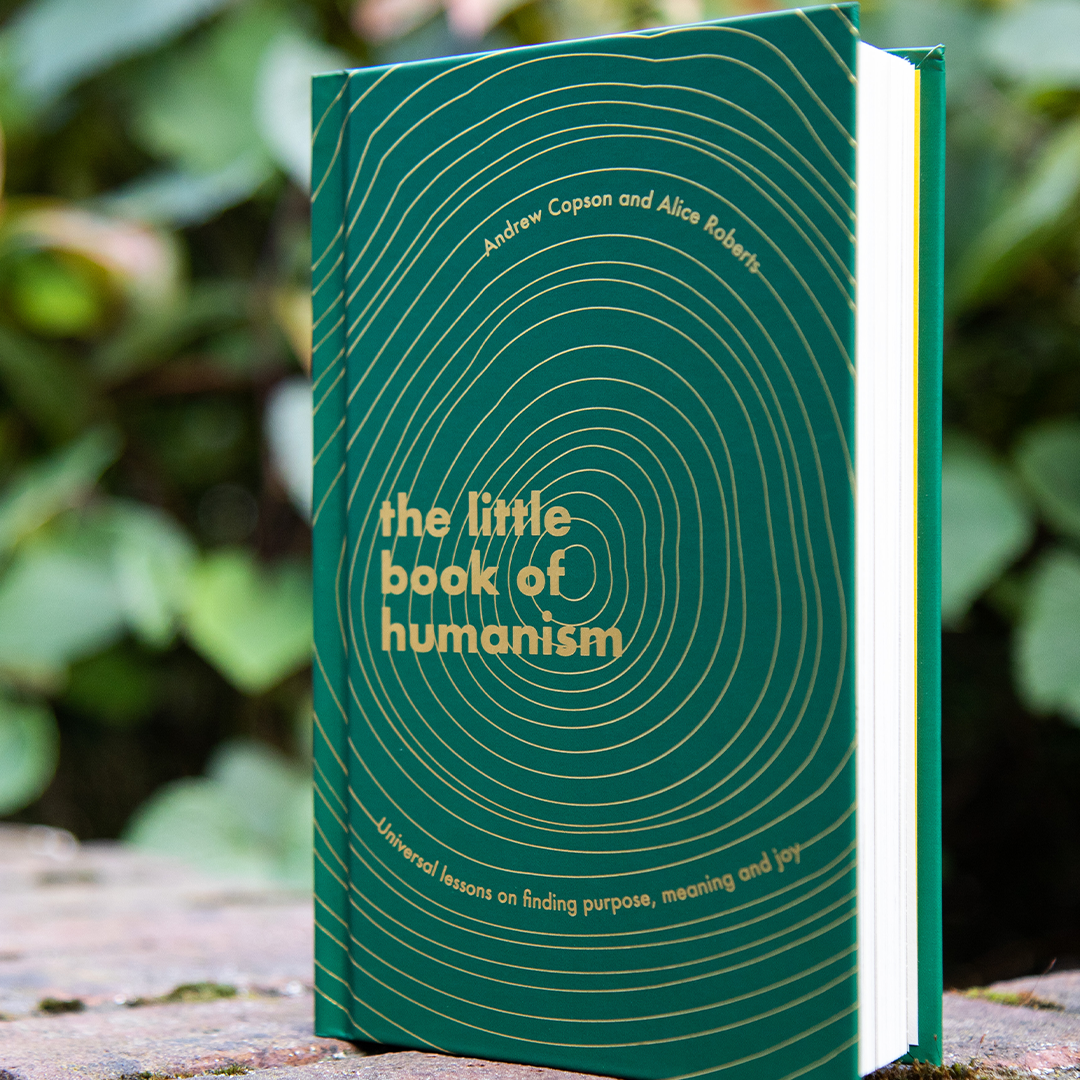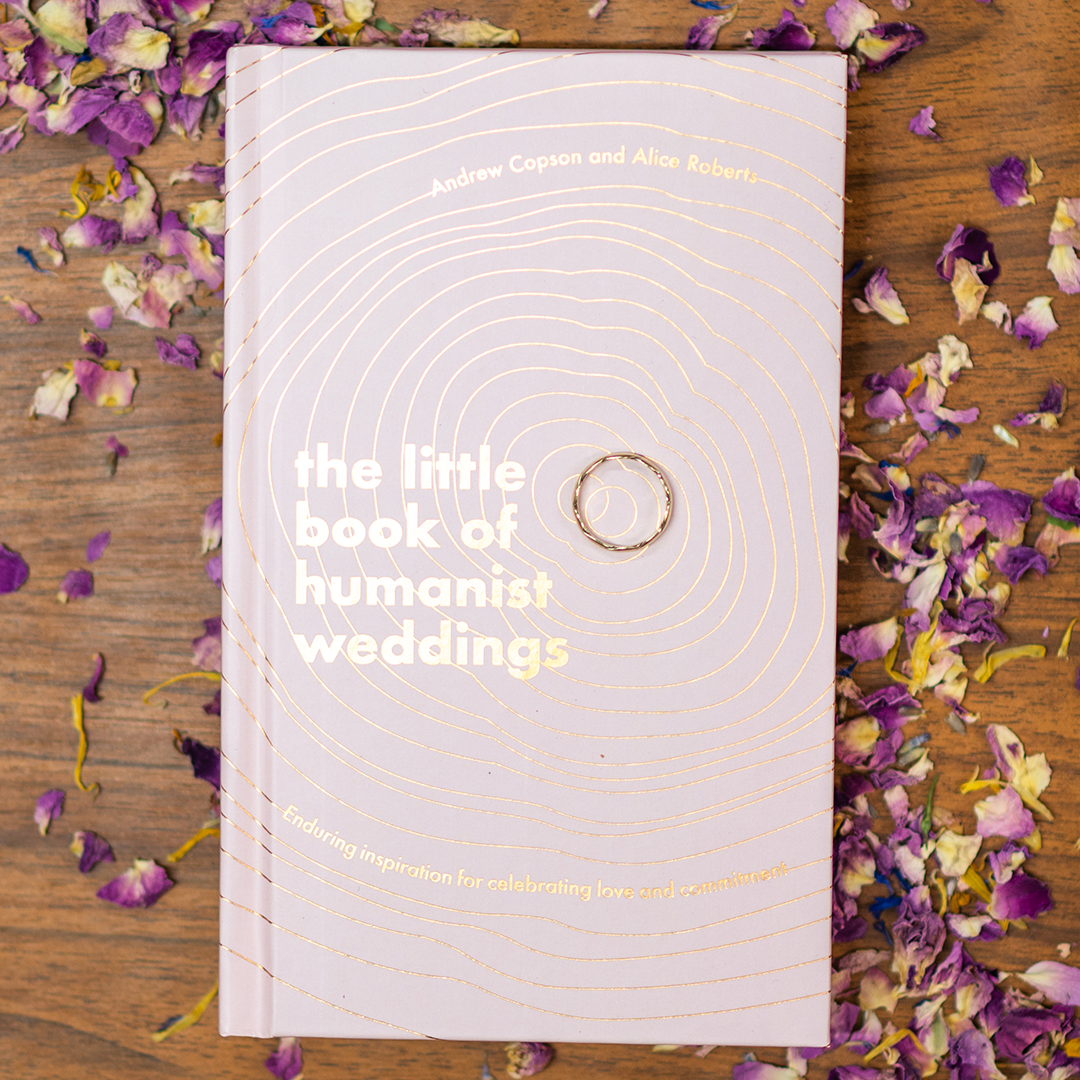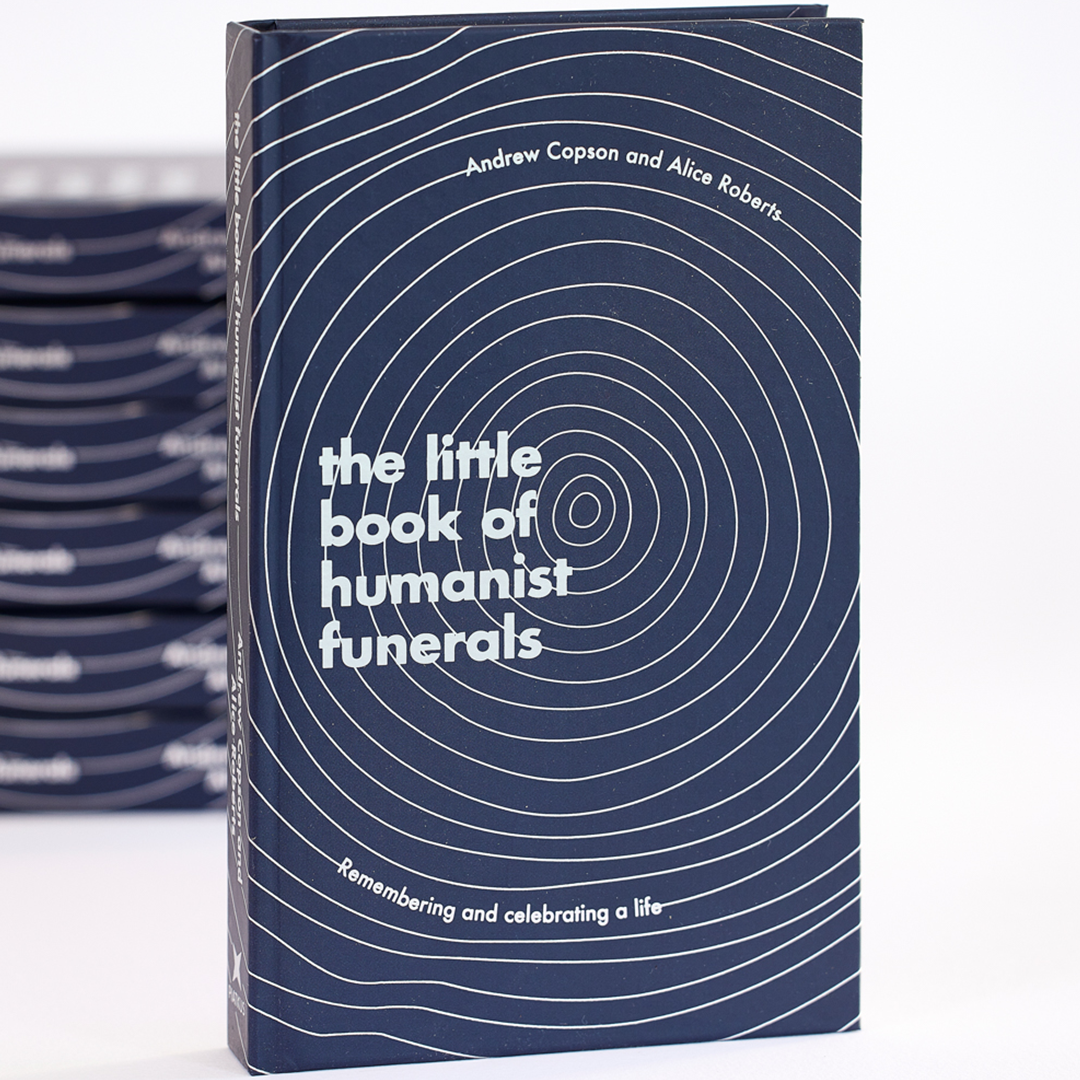
Harold Blackham, the first Executive Director of Humanists UK in the 1960s, famously said: ‘Humanism is about the world, not about humanism’. In this list of humanist non-fiction classics to celebrate our #HumanistBookshelf campaign, we count down 15 books from humanists that not only talked ‘about’ the world, but fundamentally helped to change it for the better, too.
On the Origin of Species, Charles Darwin
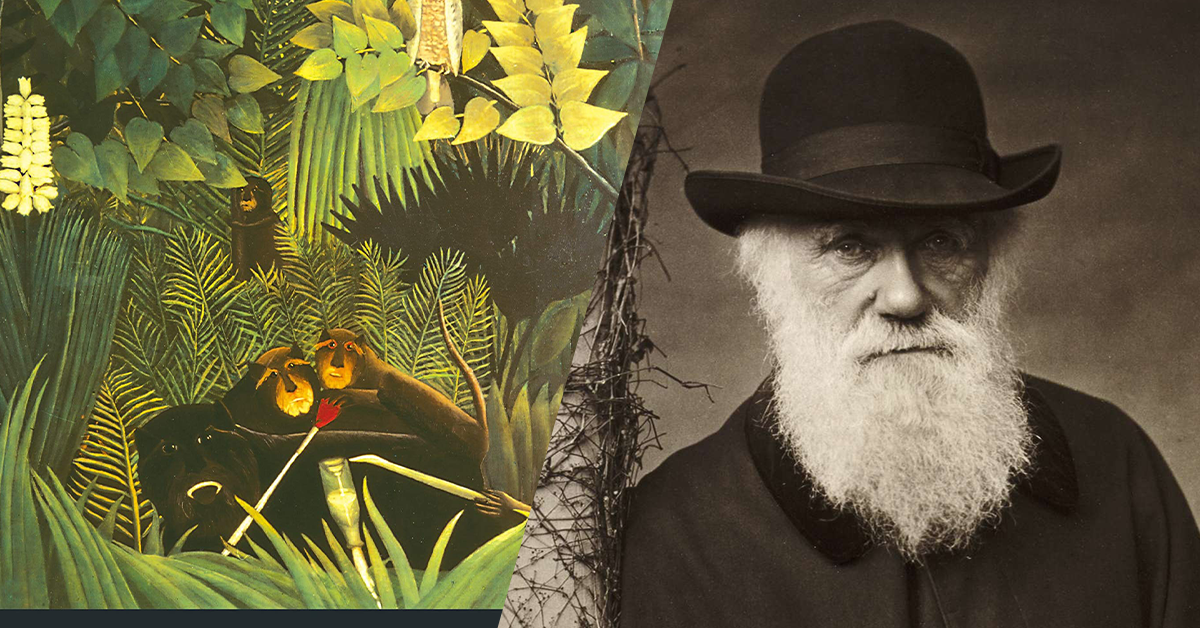
Let’s start with an obvious one! On the Origin of Species by Charles Darwin more than merits its place on any list of books that changed the world because that’s exactly what it did. Darwin’s research, and the beautiful prose through which he expounded his findings, reshaped scientific understanding of life’s diversity and the natural world. And his ideas were proven right, time and time again, by scientists from dozens of disciplines, thousands of times, in the decades that followed. Darwin’s groundbreaking theory of evolution through natural selection challenged prevailing religious views, emphasising the power of scientific inquiry, empirical evidence, and rational thinking to tell us more about the world we live in. It contributed to the Victorian ‘age of doubt’ and seeded the lesson to many that science could tell us far more about the world, and potentially how to live, than the stories handed down to us.
The Souls of Black Folk, W.E.B. Du Bois
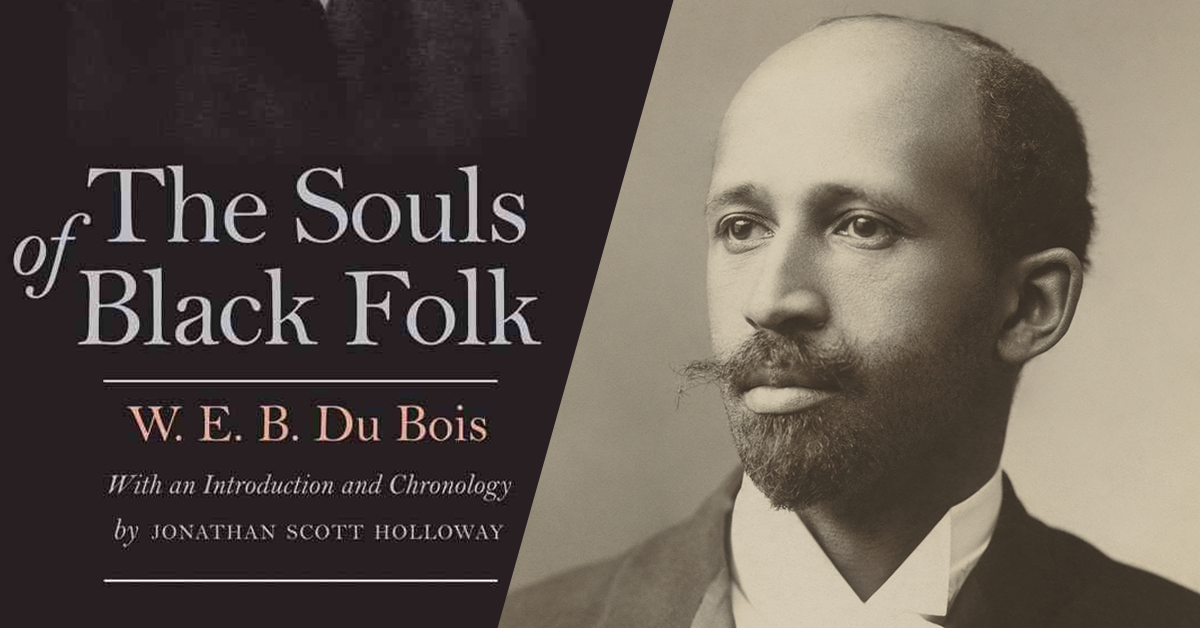
A humanist and a great friend of Humanists UK, W.E.B. Dubois’s The Souls of Black Folk was in some ways the intellectual starting gun of the civil rights movement. Eloquently addressing complex issues of race, identity, and social justice faced by African-Americans in the United States, Du Bois’s insightful writing analysed the psychological and socio-political impact of racism, advocating for intellectual and cultural empowerment as well as civil rights. Emphasising the importance of education, self-awareness, and cultural pride through compelling prose and poignant reflections, Du Bois’ fits firmly in a humanist tradition of challenging systemic inequalities and urging society to recognise the inherent dignity, worth, and potential of everyone, regardless of racial background, sex, religion, or belief.
The Joy of Sex, Alex Comfort
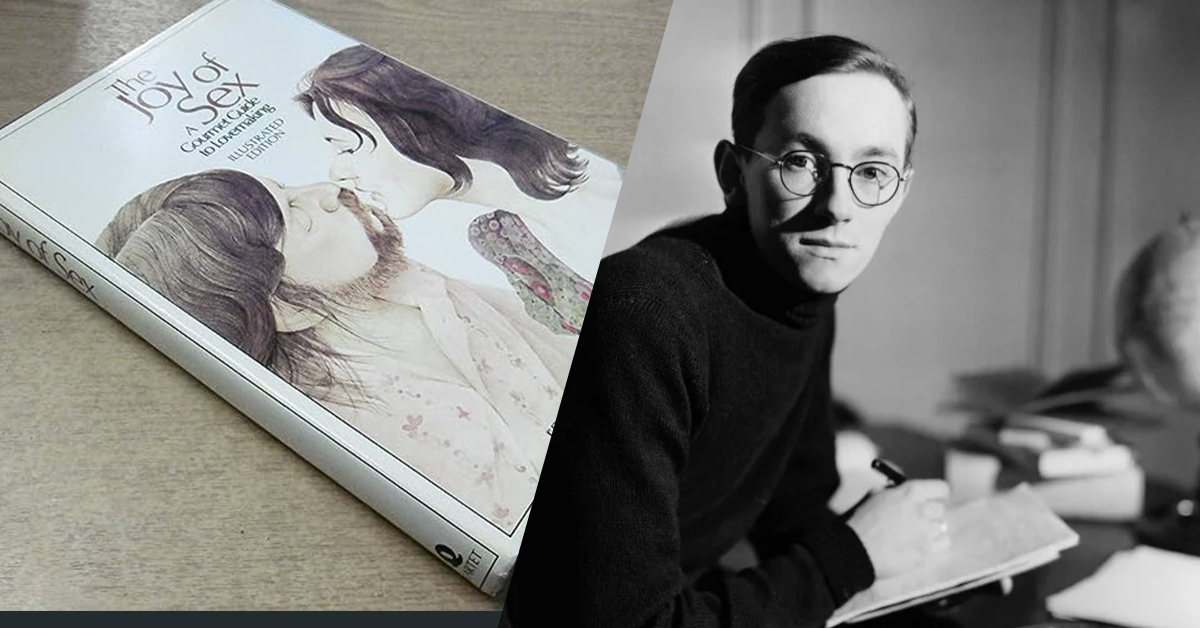
This book shook the world with its groundbreaking and candid approach to human sexuality. By openly addressing various aspects of sexual relationships, Alex Comfort challenged societal taboos and brought a wholly new and humanistic perspective to sex, emphasising the importance of consent, sexual education, and (gasp!) pleasure. Reportedly bought by many and hidden under mattresses and bedside tables where neighbours or even husbands would never find it, The Joy of Sex contributed to a quiet sexual revolution in the 1970s that reached further and wider even than that of the swinging sixties.
Three Guineas and A Room of One’s Own, Virginia Woolf
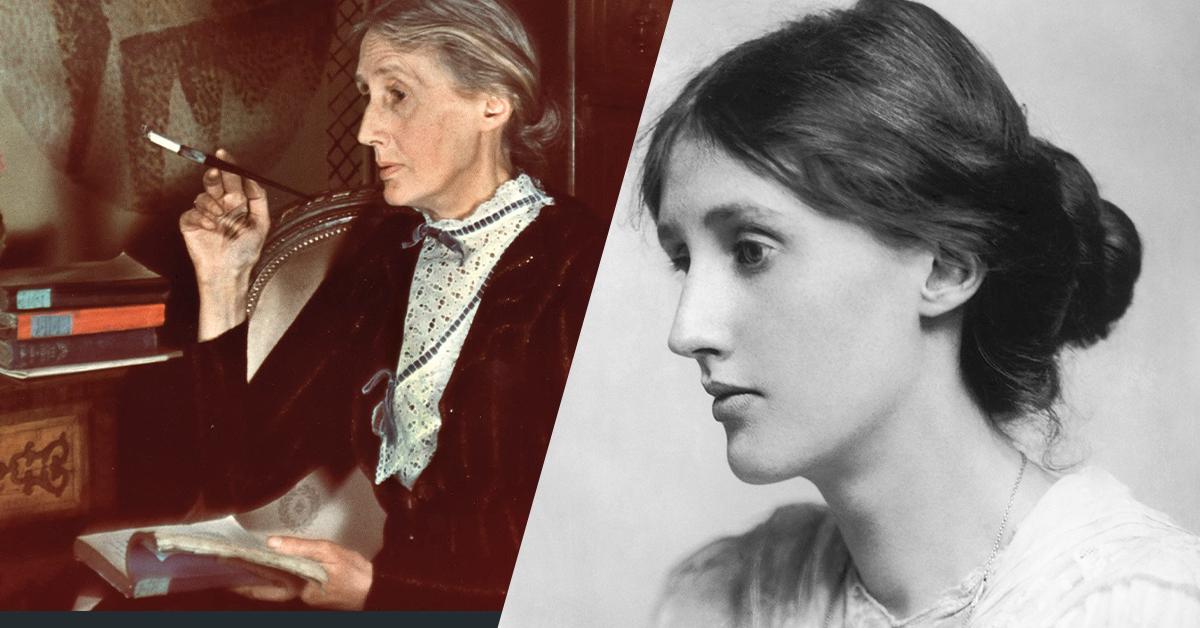
Though commonly sold bundled with Woolf’s brilliant anti-war essay Three Guineas, it is really Woolf’s earlier A Room of One’s Own that stands the test of time. Anticipating the feminist demands of the mid-20th century by decades, and drawing on a tradition of feminist writing that includes Wollstonecraft and her own mother Julia Stephen, Woolf beautifully articulates the challenges of domestic duties, childbearing, marital life, and piety expected of women, to make a case for women’s fundamental equality. Her imagined character, Judith Shakespeare, illustrates the ways that a hypothetical sister of William Shakespeare, born with the same talents, would never have been able to express them. The essay also contains some of Woolf’s most direct and daring published allusions to lesbianism and her own sexuality.
Though we have said Room is the greater work, it is in Three Guineas that Woolf most explicitly relates the suffering of her sex to a wider humanist case for a political solidarity and personal empathy that can transcend race, class, and borders too. An example of this is when she says, ‘As a woman I have no country. As a woman I want no country. As a woman my country is the whole world.’
The Second Sex, Simone de Beauvoir
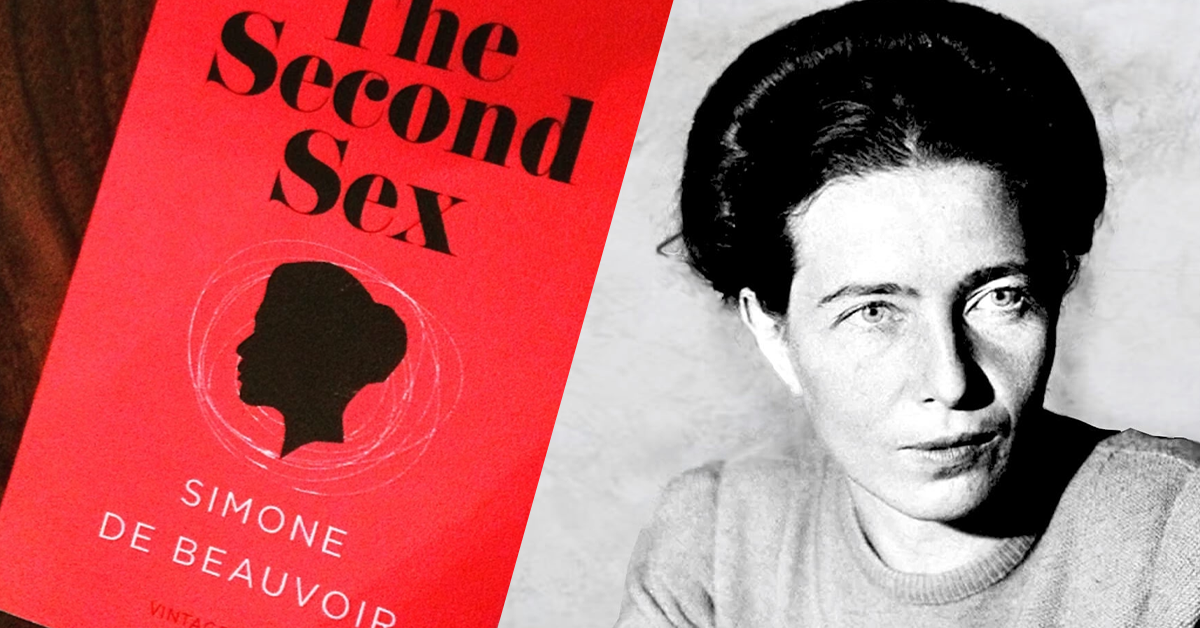
A seminal book on the role of women in society, The Second Sex by French existentialist and humanist Simone de Beauvoir is a classic that examines the status of women and challenges the deeply ingrained social norms that perpetuate gender inequality. De Beauvoir’s groundbreaking work delves into the construction of womanhood, the impact of cultural and societal factors on women’s roles, and the implications of women being perceived as the ‘Other’ in relation to men. Through rigorous philosophical analysis and a humanistic lens, de Beauvoir calls for the liberation of women from oppressive structures, advocating for their autonomy, agency, and rightful place in shaping their own destinies. By highlighting the interconnectedness of women’s civil rights and the humanist and existentialist outlook on life as also written about by her lover Albert Camus, The Second Sex not only contributed to humanist thought by championing individual freedoms and self-determination, it also advanced a wider conversation on human rights and social justice, and gave readers the tools and the language to take that conversation forward.
The Selfish Gene, Richard Dawkins
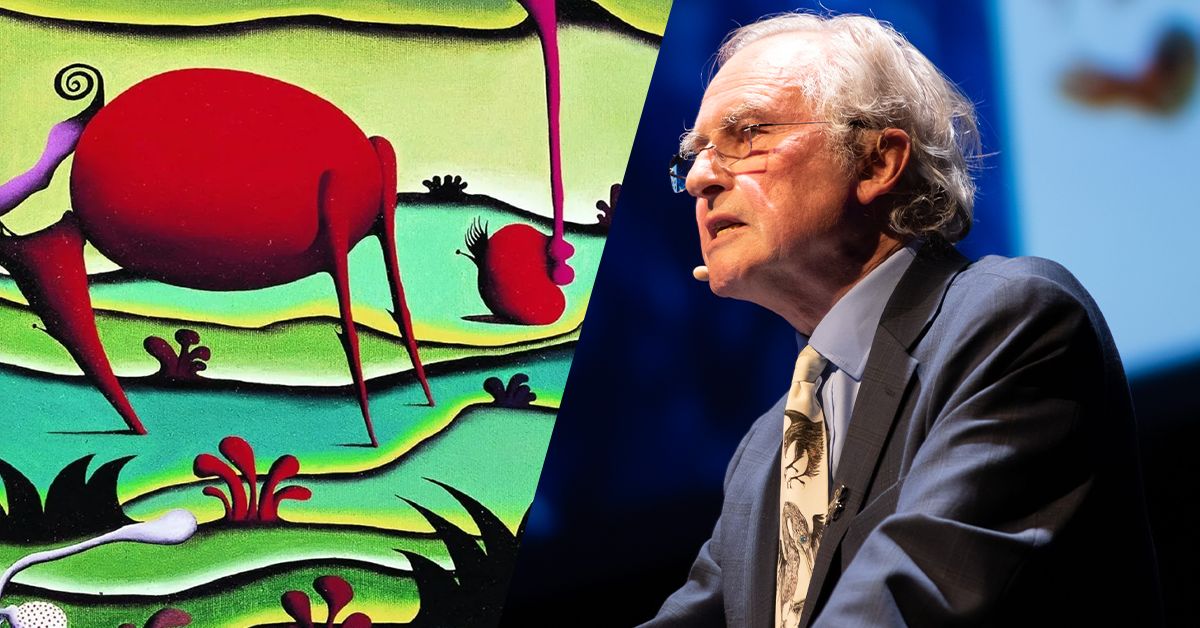
Ever heard of a ‘meme’? The concept comes from the biologist and Humanists UK patron Richard Dawkins. In best-selling classic of popular genetics The Selfish Gene, Dawkins provides a lucid and beautiful account of the complexities of natural selection, and puts forward a ‘gene-centric’ view of evolution that would inspire legions of zoologists and geneticists in the decades to come. He also, by analogy, posits the idea of a unit of information that behaves in the way of a gene, using the metaphor of how ideas spread, mutate, and evolve to show how this can be true of genes too, despite the lack of any intelligent force directing them. Here he inspired yet another field of academia – memetics – and contributed enormously to our understanding of how ideas spread in politics, cultures, across borders, and latterly, on the web. This is truly a seminal work, encouraging readers to engage critically with scientific ideas and from that, see the poetry of reality in the interconnected web of life in which we all exist.
And of course, Dawkins set the humanist world alight again in 2006, with The God Delusion and the publishing craze that followed.
The Rights of Man, Thomas Paine
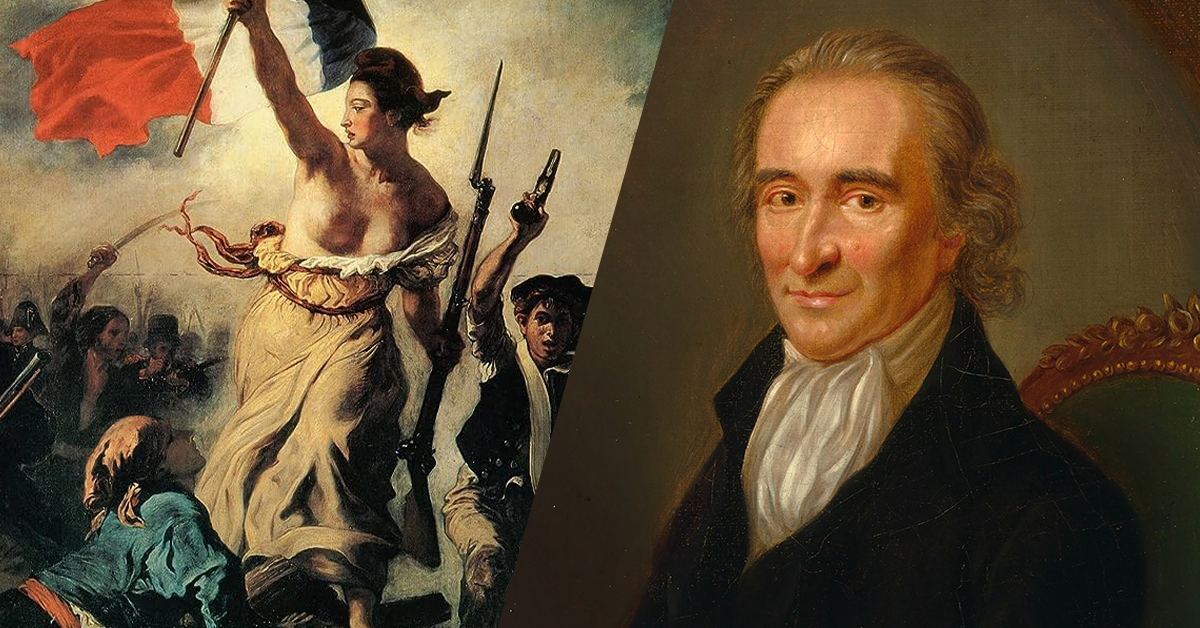
The Rights of Man by US founding father Thomas Paine holds a significant place among humanist classics of non-fiction as a powerful defence of individual liberties, democratic governance, and the rule of law. Most strikingly, Paine’s work took the idea of human rights – until then, a primarily philosophical concept – and began a process of translating into a political and legal one through the idea of his new country born from philosophy, as realised in the US Constitution. It in turn would influence the Universal Declaration of Human Rights. It is easy, looking back now, to lose sight of how daring, radical, and provocative many of Paine’s ideas were. By championing the idea that political power derived from the people and that governments existed to serve the common good (and not merely their own self-preservation), Paine’s seminal work aligns with humanism’s emphasis on human agency, rational discourse, and the pursuit of justice.
Household Education, Harriet Martineau

This famous social theorist and translator of humanist tracts by Auguste Comte and others lit the patriarchy on fire with her 1848 classic Household Education. Where Woolf and feminists of the 20th century would choose the domestic home as a key battleground for women’s liberation, writing in an earlier age Harriet Martineau sets her sights squarely on advocating for women’s intellectual and moral development, aligning with humanism’s core values of exploring one’s potential and embracing our capacities for self-improvement. Martineau’s humanist values are evident in her call for equal educational opportunities, emphasising that the advancement of society relies on the education and empowerment of everyone, regardless of sex. In this way, she made the lucid case that women’s rights are human rights, and that all lives in society will be improved once women are given the same opportunities to think, and so to shape their own lives, as men.
Controversial as much for her unapologetic freethinking humanism as for her views on women’s emancipation, her influence is felt not just in the movement for women’s suffrage she helped to galvanise, but in the humanist organisations and writers who found inspiration in her writings on free inquiry, social conscience, and the pursuit of happiness.
The Interpretation of Dreams, Sigmund Freud

Today remembered for just how much he got wrong or quite simply made up, it’s easy to forget just how revolutionary was the Austrian neurologist and humanist thinker Sigmund Freud. As the ‘father of psychoanalysis’, Freud brought a whole new way of thinking to people’s inner lives that today for many has replaced, and improved upon, the solace religions used to provide for the masses in the West. Imperfect, very arguably, but undoubtedly a good deal better. Through the development of psychoanalysis as a field, society also learned to harness and foreground empathy to a greater extent in understanding where and how things came to be in the lives of human beings, and why we and others do as we do.
Though it’s now thought that dreams themselves are largely meaningless, except for whether they might reveal if you are quite obviously stressed or preoccupied by a particular topic, The Interpretation of Dreams is nevertheless the source of so much rich and informative thinking about human nature. This book fundamentally changed ideas of the human mind in popular understanding, enriching humanity’s discourse on self-discovery, empathy, and our continuous quest to better understand our nature.
Silent Spring, Rachel Carson
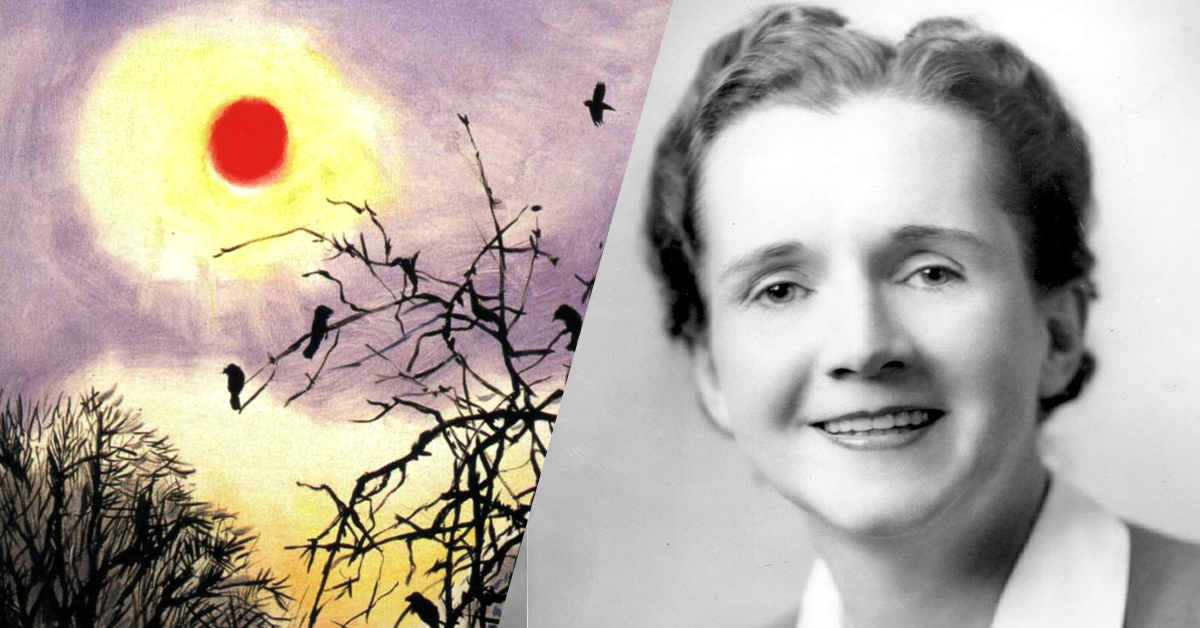
In the 2020s, most of us are environmentalists in the sense that most of us accept that anthropogenic climate change is real and that action must be taken to avert its serious consequences. Rewind, now, to 1962, when such concern for the planet was popularly derided as hippie time-wasting, not just by powerful politicians, but by most people. In Silent Spring Carson puts forward a manifesto for the better care of our planet, and a rallying call for stewardship of the natural world, emphasising the inherent interdependence not just of human lives on Earth, but of all living things who share this planet as our home. A prize in its era for its undeniably humanist commitment to reason, evidence, and the wellbeing of others: think for yourself, act for everyone.
Why I Am Not a Christian, Bertrand Russell
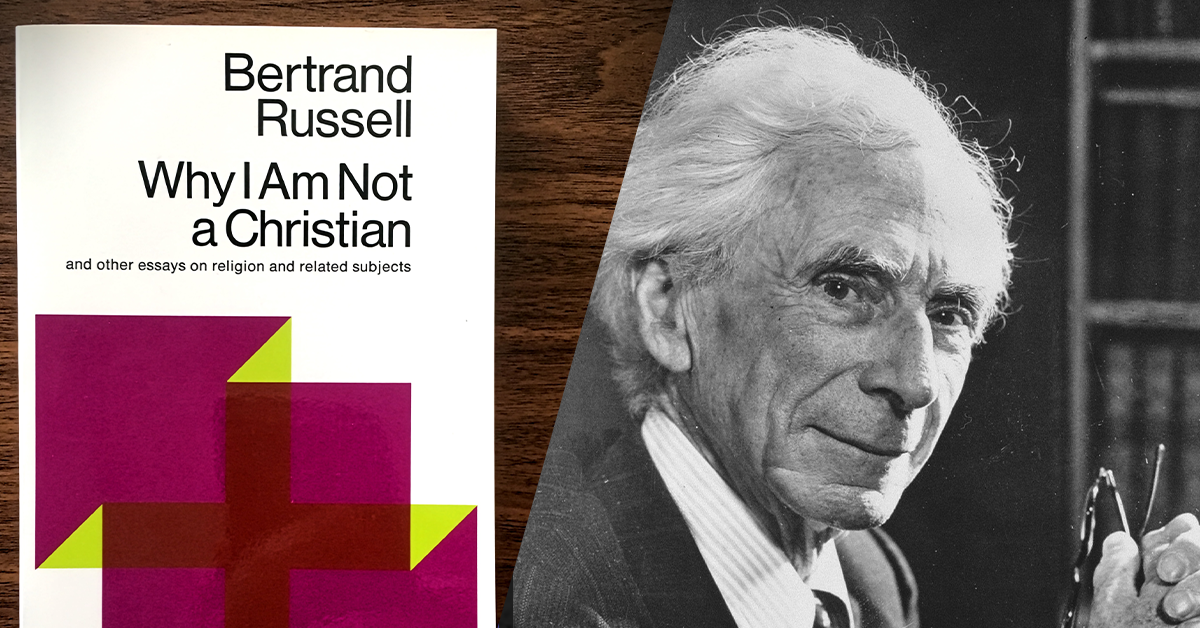
Why I Am Not a Christian by Bertrand Russell holds a significant place among humanist non-fiction works for its clear and rational critique of religious beliefs and organised religion itself. Russell’s thought-provoking essay dissects theological arguments, highlighting inconsistencies, contradictions, fallacies, and ethical shortcomings in traditional religious thought. By advocating – with his trademark compassion, relentless logic, and stylistic panache – for a sceptical and evidence-based approach to understanding the world, Russell brought humanism’s focus on reason, critical thinking, and the importance of basing beliefs on evidence to a large audience. Already a public advocate of Humanists UK and a regular broadcaster on humanist themes at the time, Russell’s lecture and later essay went on to exert a profound influence on a thousand other such other narratives, including all the major ‘New Atheist’ titles of the 2000s. By encouraging individuals to question dogma, embrace scientific inquiry, and embrace a humanist worldview that values ethical and moral principles rooted in human compassion, empathy, and a shared sense of social responsibility, Russell earns his place on this list many times over.
Dust Tracks on a Road, Zora Neale Hurston
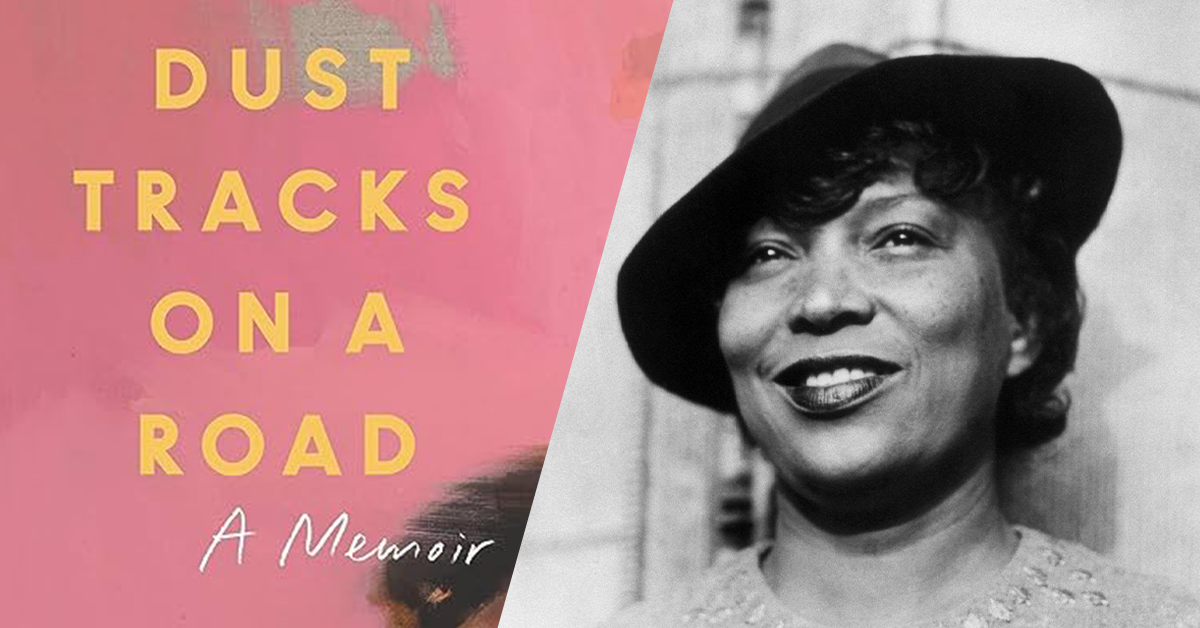
The only memoir to grace this list is Dust Tracks on a Road by Zora Neale Hurston. Clearly the work of a thinker who was not just a fine novelist, but a talented anthropologist too, Hurston offers a personal and luminous account of her upbringing in the American South and her development as a writer at Howard University. Sometimes read as a companion to her novel Their Eyes Were Watching God, here we see Hurston’s own literary brilliance and the strength of her humanist convictions. Condemned in its time as ‘unreliable’ and politically ‘contradictory’, it stands the test of time now for its experimental and subversive form, and the brilliant insights it offers into the lives of intellectual African American women in a society that did not cater for their ambitions.
It also contains some of the most moving and inspirational prose anywhere in Hurston’s writing, particularly when she contemplates our place in a godless universe and the immense satisfaction, joy, and peace she takes from being ‘one with the infinite’. Here there is sparkling poetry in motion that tingles the spine, all premised on a humanist view of life, meaning, and finding purpose.
The History of the Decline and Fall of the Roman Empire, Edward Gibbon
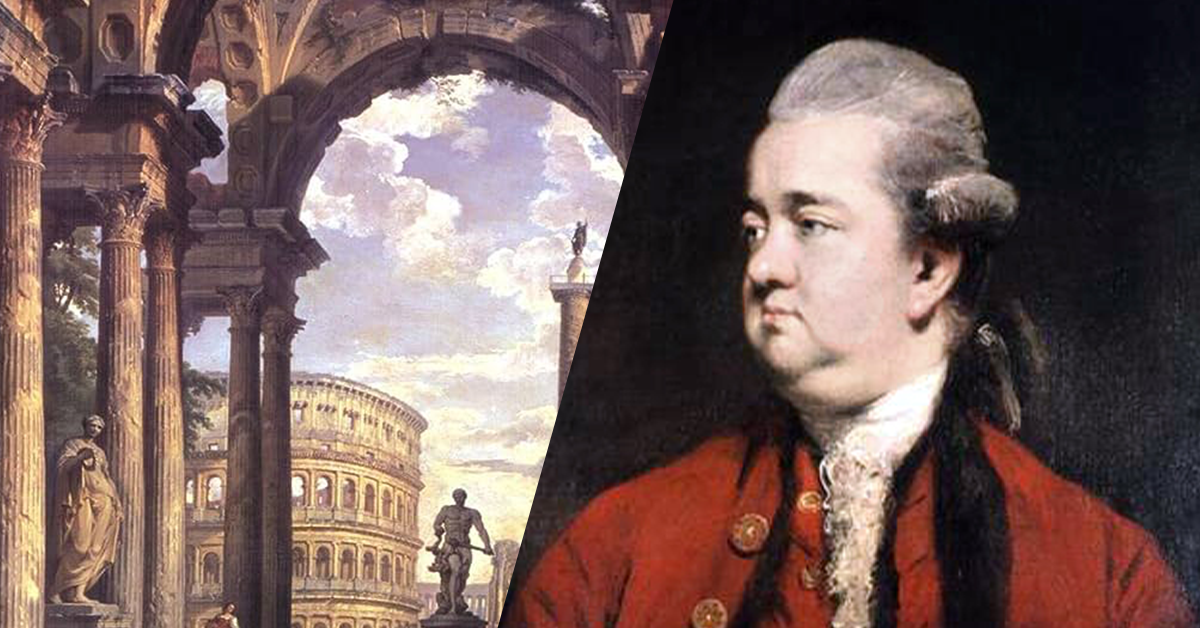
The History of the Decline and Fall of the Roman Empire by Edward Gibbon was a very big deal at the time. And it changed how we all think and write about history. This is seen most clearly in the writing of his fans and critics, for whom one’s position on The Decline and Fall could frame his defenders and his enemies either as soldiers of a Christian tradition that saw everything good as Christian and everything bad as not, or as dangerous avant-garde secularists who didn’t know just what they were throwing away when they put God out of their minds. This now-tired debate, at that time focused on Gibbon, has since played out in many other arenas, but what remains striking is Gibbon’s sizable contribution to a humanistic view of history, bringing the principles embraced by Enlightenment thinkers in science and philosophy to yet another area of human inquiry.
Or as Edward Clodd put it in a 1916 Conway Hall Memorial Lecture, ‘it remains to his immortal credit that, once and for all, [Gibbon] cleared the way to subject Christianity to the same method of investigation which is since adopted in every field of research, and this at a time when the science of comparative theology was yet unborn… and, covertly denying the supernatural origin of Christianity, opened the road to proving that its progress, or whatever else we choose to call it, is explicable by human agencies, and human agencies alone.
Notes on Camp, Susan Sontag
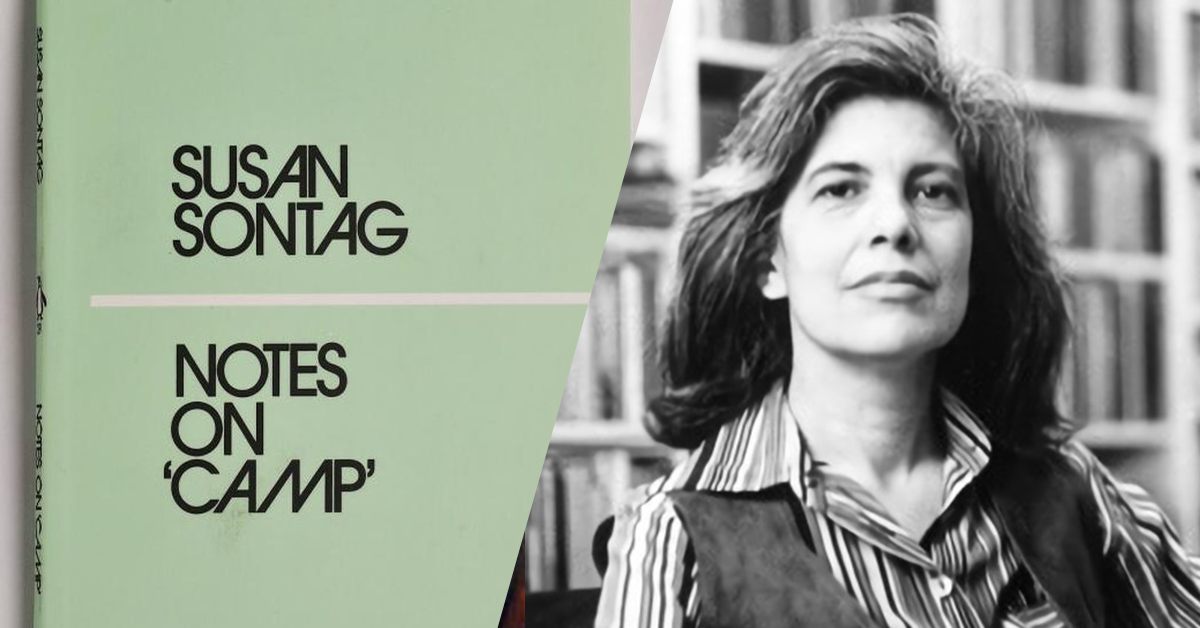
Cultural critic, public intellectual, and human rights activist Susan Sontag is one of those figures who has had such a pervasive influence on popular culture and even politics that tracing its seams is a difficult task. In “Notes on Camp”, she solidified her status as the premiere analyst of American and global popular culture and gave rise to a new language for discussing the sensibilities of media, our personal modes of expression, and their implications for the world we live in. With sharp wit and cultural insight, Sontag examines the nuances of the phenomenon of ‘camp’ in art, fashion, and popular culture, unravelling its paradoxes and celebrating its exuberant defiance of conventional norms. A foundational text in the study of cultural critique, Sontag’s analysis not only deepens our understanding of camp but also encourages readers to engage critically with the complex interplay between high and low culture.
Her other major work, Against Interpretation, deserves a mention in a humanist list, too. After the heyday of post-structuralist and Marxist criticism, Sontag’s finely tuned work of serous reflection calls for the world to rein in the impulse to strip meaning and intent from the things we analyse, and makes an affecting case for the primacy of aesthetics – beauty itself – in art.
Thinking to Some Purpose, Susan Stebbing
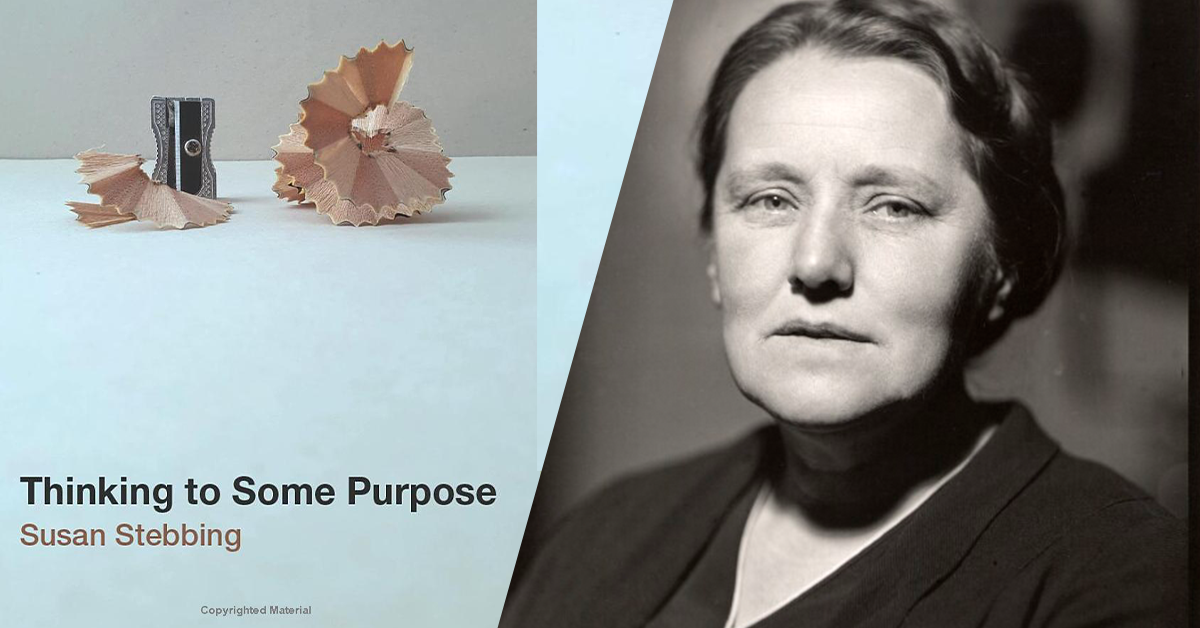
The most underrated and under-celebrated entry on this list is philosopher L. Susan Stebbing’s landmark work of humanist philosophy, Thinking to Some Purpose. Written shortly before her term as the first woman President of Humanists UK, Thinking to Some Purpose offers the ultimate humanist guide to a mind without blinkers. Reading it in the 2020s, you get the illusion of someone who had an almost prophetic understanding of the world that was to come and the era of social media. Stebbing’s concern is with how faulty thinking can threaten the fabric of healthy democracies. In many ways, writing as she did in the late 1930s, she identifies the conditions that gave rise to authoritarian populism in Europe. A call to arms to think more carefully, Stebbing writes that:
‘There is an urgent need to-day for the citizens of a democracy to think well. It is not enough to have freedom of the Press and parliamentary institutions. Our difficulties are due partly to our own stupidity, partly to the exploitation of that stupidity, and partly to our own prejudices and personal desires.’
It’s important to add that none of these books or writers are perfect…
The books here go some way towards pointing out why freedom of thought, choice, and expression, including freedom of religion or belief, are such big priorities for humanists and such a big campaigning focus for Humanists UK. But of course some get things deeply wrong, or showed their authors were as ignorant in one area as they were brilliant in another. Some are simply products of when they were written.
That’s one of the joys of the humanist approach to life. We don’t have Bibles or saints… we have bookshelves! Our approach is to recommend reading and listening widely before making your own mind up. And then being prepared to change your mind, at any time, if persuaded by evidence or good arguments. Simple, maybe, but you’d be surprised how rare it can be.
And while we’ve not included The Wealth of Nations by the humanist writer and free market economist Adam Smith, or anything from the Marxist tradition, it’s also clear a case could be made for those works changing the world, too – wherever you land on those topics.
What this list shows, we hope, is that it’s only by challenging taboos, and bringing forward new ideas (and occasionally being prepared to offend the polite world’s sensibilities) that true progress is fought for and won. In doing so, these authors have collectively enriched human understanding and helped to make the world a kinder, more rational, and happier place.
Why not start your own humanist bookshelf?
Our Little Book series is the perfect introduction to the humanist approach to life, and looks good on any bookshelf!
Notes
Humanists UK is the national charity working on behalf of non-religious people. Powered by 110,000 members and supporters, we advance free thinking and promote humanism to create a tolerant society where rational thinking and kindness prevail. We provide ceremonies, pastoral care, education, and support services benefitting over a million people every year and our campaigns advance humanist thinking on ethical issues, human rights, and equal treatment for all.

